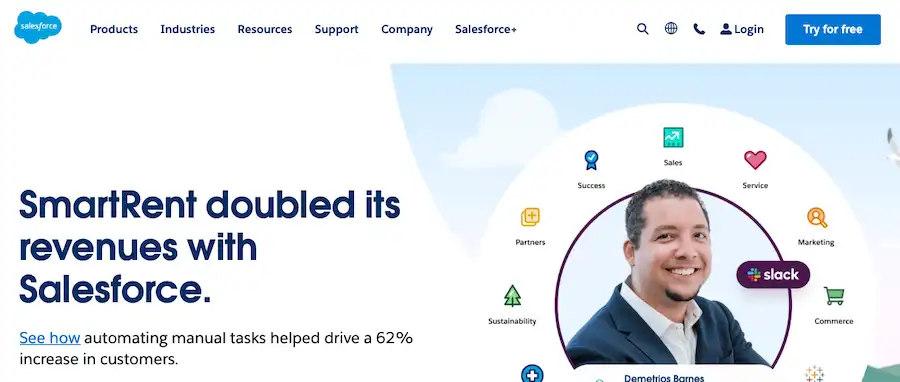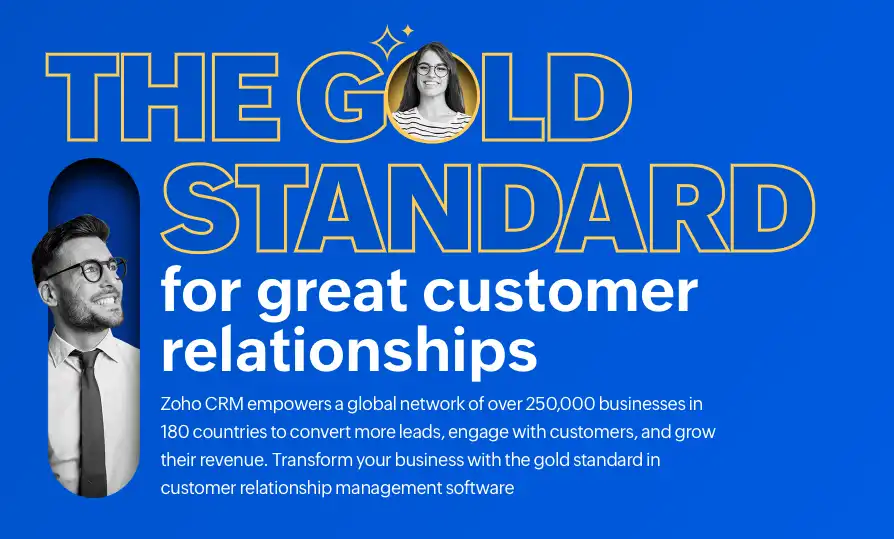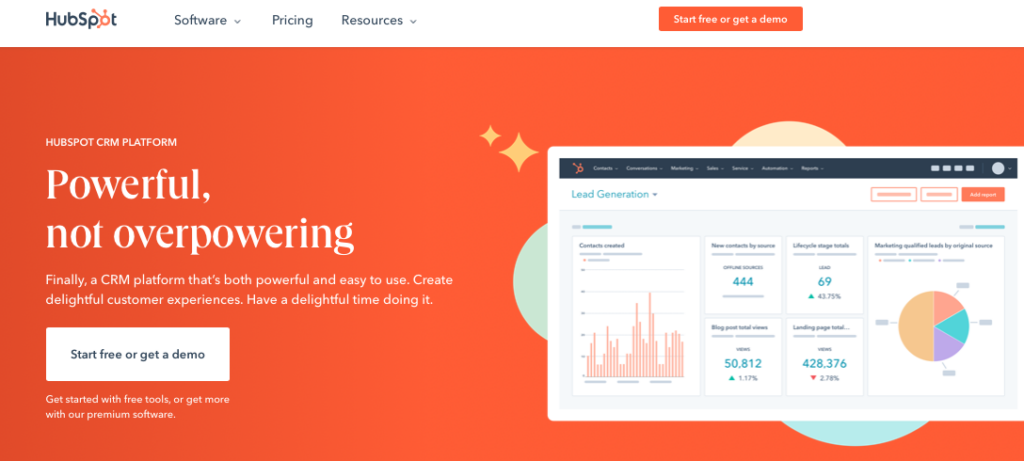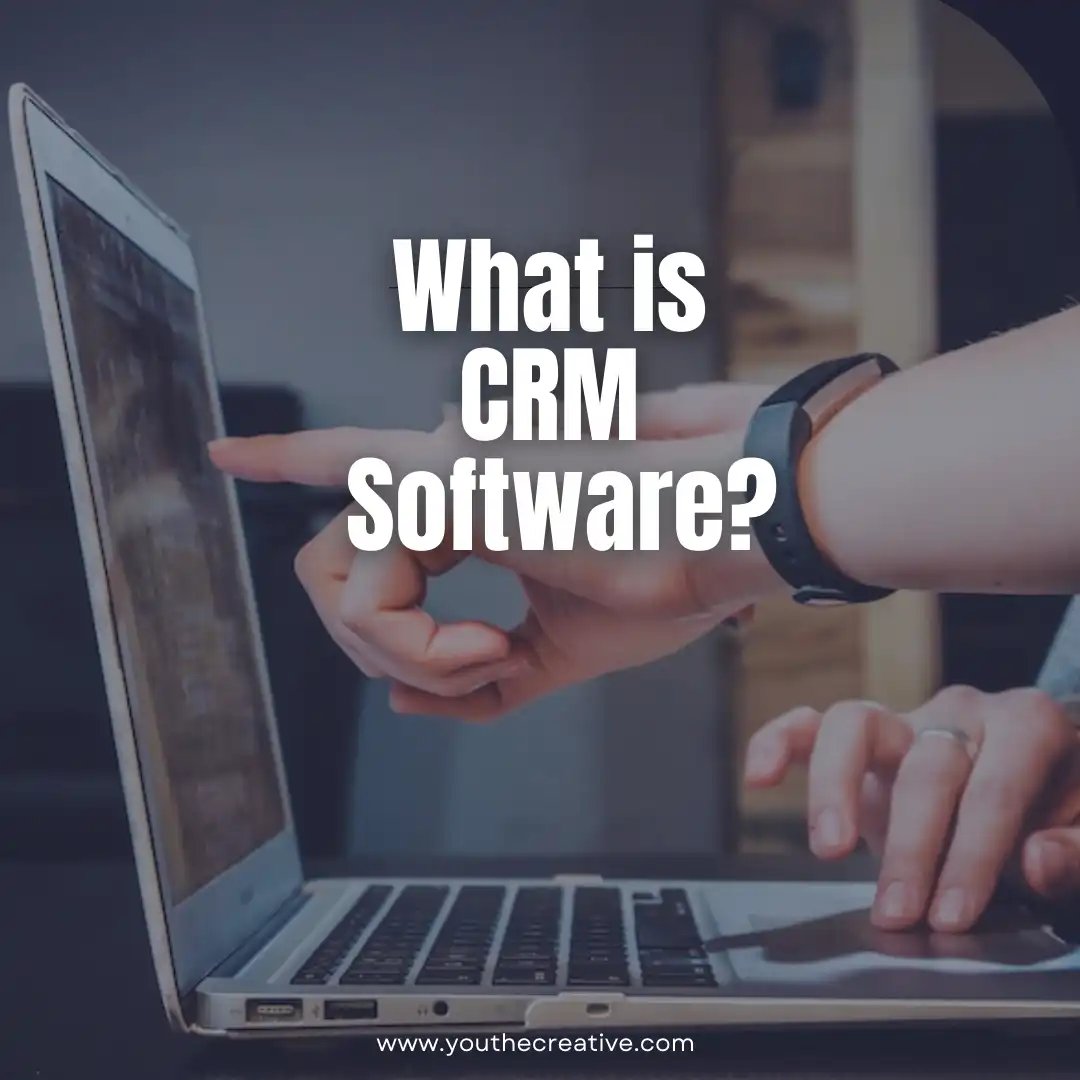Getting caught up in the day-to-day details is easy when running a business. You know the type: answering emails, checking inventory, processing invoices, and paying bills. And the list goes on. Unfortunately, being involved in such operations at such a granular level can detract from the functioning of your business as a whole and actively inhibit growth.
That’s why so many have used CRM software, at least in part, to streamline business operations, keep things organized, and improve customer relationships (and retention) overall.
But if you’re unfamiliar with this software category, your eyes might be glazing over. Not to worry, though. Today, we’re taking you on a deep dive into CRM. We’ll discuss what it is, how it works, and who can benefit most.
There’s no time like the present to learn all about CRM. So let’s get started.
What Does CRM Stand For?
CRM stands for customer relationship management and refers to tools you can use to manage every interaction you’ll ever have with your current and potential customers. The idea here is that by combining all your communication tools into one place, you can better manage your customer relationships and experience more positive outcomes.
So what is CRM software then?
Well, it’s any tool, app, or service that offers features for managing customer relationships. This software aims to streamline operations and keep companies more connected with their customers to improve the customer experience and boost profits in the long run. Common features included in this sort of software include:
- Contact management
- Productivity tools
- Marketing tools
- Inventory management
- Customer Outreach
- Social listening tools
- Sales management
- Customer service and support tools (including ticketing systems)
This will vary depending on the specific software you opt for. But the above is what you can expect from some of the bigger CRM providers.
Who Can Make Use of CRM Software the Best?

While any company can use CRM software and likely experience positive benefits, it’s not always necessary for every business size. After all, a small business might only have a small team who handles things through automated tools. And if you’re not a customer-facing company, then you’d only need a supply management tool and/or productivity tools to keep everyone on task.
Beyond those exceptions, most businesses will find that CRM software is beneficial for keeping tabs on all aspects of running a business, from customer service to recruiting to marketing. It’s one of the best ways to organize and manage any interaction your business will have with external parties, including vendors and customers.
And the best part is this software keeps everything in one centralized location, so everyone on your team can review it, assess it, and make better daily decisions based on what’s collected there.
It’s also a great benefit for those who recognize trends and predicts what’s next. Companies that strongly need to evolve with the times or predict trends will find CRM software useful for collecting large datasets from which to extrapolate such information.
How Does CRM Software Work?
Now let’s turn our attention to how CRM software works. While you can use CRM in just about any fashion you prefer, we’re discussing a typical setup for customer relationship software and will describe how most businesses use it.
Typically, you’d set up your CRM to collect potential and current customer information. This information may be input manually from a current customer list or database or input by the customer themselves directly from your website. Perhaps they were interested in your services and filled out a form that included their name, website address, email address, phone number, and perhaps even their social media accounts.
Once submitted, this data will be sent to your CRM and entered into your company’s database. You can then categorize this prospect or customer however you wish to start them on an email campaign, to follow up with them for a sales call or demonstration, or something else specific to your business.
You can also set up schedules or calendars to ensure you follow up with certain prospects or customers after a given time to ensure they receive personalized treatment. And you can do this either manually or through an automated campaign you pre-configure.
Essentially, CRM software helps you keep all your ducks in a row, no matter how large and unruly your business can sometimes feel.
What Are The Benefits of CRM Software?

We’ve touched on some benefits already, but let’s dive into the details now. The benefits of CRM are wide-ranging, evidenced by just how popular the software type has been. It’s a rapidly growing industry and projected to reach $157.5 billion by 2030!
So obviously, many companies understand the importance of CRM for overall productivity and success. But do you know the specific benefits you stand to experience? Perhaps not!
Let’s review a few of them now:
1. Technology is the Way of the Future
If your business hasn’t completed its digital transformation yet, it’s likely on the path to doing so. And implementing a CRM system is one of the best ways to accomplish this. Since this software is often so all-encompassing, it helps companies fully take their operations into the modern era and allows for faster innovation and adoption of new tools and tech.
There’s no need to roll out a tool slowly across your whole team when you can create a resource in your CRM for the team to review and implement immediately.
2. Trend Monitoring
A fantastic perk of using CRM software is that it allows you to monitor trends in real-time. Since the system collects and organizes data in useful ways, you can often view summaries and breakdowns about different aspects of your business whenever you’d like.
You can also use it to keep track of customer support and how effectively your team handles service issues. You can also monitor social media for the latest trends related to your industry. This is especially important for marketing plans – you need to know what real people think about your industry, product, service, or website.
3. Cohesive Organization
CRM software also provides a way to organize every aspect of your business functions in one location. It’s similar to project management tools in this way. However, what sets CRM apart is its scope. A good CRM can cover nearly every aspect of your business, from project management to lead generation to customer service. All team members can have access to the same tools and data.
Over time, this can lead to better customer outcomes, especially since you’ll have the customer’s entire history with your company within reach. Their specific concerns can be addressed with haste and specificity – often lacking from the support offered by companies that manage tasks and support through disparate tools.
4. Enhanced Productivity
Another key benefit of CRM software is its ability to bolster productivity across every aspect of your company. All team members will be on the same page and know what’s expected of each other across various tasks. Sales teams will have access to the marketing team’s research. Accounting can follow up with vendors and team members alike for payment processing.
With everything managed in one place – both internally and customer-facing – your business will thrive.
5. Leave No Stone Unturned
The last benefit of CRM software we’ll discuss here is how it makes it possible for you to try out every avenue and explore every possibility for connecting with customers and driving sales. Robust data sets and clear communication tools make it much easier for marketers to optimize campaigns effectively and develop sales funnels that work.
How to Get Started with CRM Software

Now that you know why CRM is fantastic, let’s talk about how to start using CRM software for your business. Here’s how to begin after selecting a platform:
1. Transfer Existing Tools to the CRM
If you already use business management tools, you must transfer the data from them to the CRM. You can often transfer data logs using a .CSV file. Doing this upfront will ensure your collected data is used well and sets a solid foundation for your company’s next steps.
This also involves connecting accounts directly to the CRM. To enable social media monitoring, you’ll need to add your company’s social accounts; to process invoices, you’ll need to connect a bank account, etc.
2. Add Team Members to the CRM
The next step is to add user accounts for all your team members to the CRM. And if there’s any welcome content available from the software developer, provide that to your team as well. Conducting a meeting on how to use the tool that walks the team through each of its processes can be helpful, too, for orientation purposes.
3. Assess and Analyze
Once everyone is on board, you can use the CRM properly. This means evaluating leads as they come in – in real-time – for their viability. It means being able to assign follow-ups with these leads to team members immediately (or automatically). And it also means being able to conduct robust lead nurturing efforts to improve sales and profitability.
4. Boost Availability and Customer Retention
Using a CRM means your support staff will be more readily available to field customer service requests. And with thorough reporting, analytics, and documentation on hand, your team can also provide better quality and timeliness to your customers.
And over time, this can increase customer retention rates considerably.
5. Collaborate in Real Time
Ditch the never-ending email chains and even the constant Slack notifications. Instead, all communication can be managed from within the CRM. This means contextually-relevant conversations happening in real-time, without adding attachments, hunting down documents, or finding a lead’s contact info. It’s all right there, available for use directly within the CRM.
Popular Examples of CRM Software
If you’re poised to get started with a CRM but aren’t sure which tool to use, we’ve researched the current top options.
Salesforce

Salesforce is by far the most popular CRM software currently available. It offers many features, including project management, finances, lead generation, analytics, and more.
Zoho CRM

Another popular option is Zoho CRM, which aims to help companies generate and convert leads, build better customer relationships, and increase revenue.
HubSpot

And there’s HubSpot, too, which provides a similar scope of features as the previous two options but also offers smaller plans of just certain feature sets to help companies that perhaps don’t need the entire suite.
Using CRM Software Can Change Your Business
There’s no reason to put it off any longer. You know what a CRM is now and you have a clear understanding of its benefits. It’s time to see for yourself how adding a CRM to your workflow can improve your business.


Leave a Comment